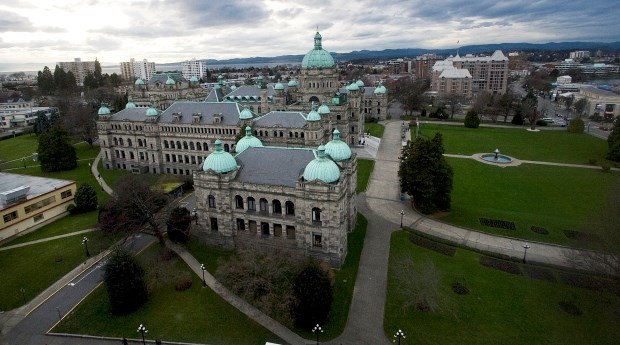 The B.C. School Trustees Association is happy about the hundreds of millions for new teachers, but wants more money to build schools.
The B.C. School Trustees Association is happy about the hundreds of millions for new teachers, but wants more money to build schools.
The Wilderness Committee is happy about small tweaks to the carbon tax, but wants “big, bold steps” to protect the environment and address climate change.
The Canadian Centre for Policy Alternatives is happy about new housing for the homeless, but wants $10-a-day child care, as promised.
Me, I want free ferry rides. Damn it, if Vancouver drivers can do line sprints on the Port Mann bridge without a tripping a toll camera with every pass, then I want to board the Coastal Extortion without first having to sell a kidney.
This is the New Democrats’ old conundrum: When a government changes, everybody who has been stuck on the outside wants in, has a foot jammed in the door and a hand extended palm-up through the gap.
As finance minister, Carole James has a long line of suitors who have felt shut out during 16 years of Liberal government. Now they feel it’s their turn.
For the most part, they were pleased Monday (or at least content to be put off until spring). Those who live in the margins — a reluctant obligation to the Liberals, but the raison d’être for the NDP — had a big presence in the budget update unveiled by James.
The NDP plans $1.8 billion in new ministry spending over three years. The increases include $472 million for increased social assistance, $208 million over four years to build 1,700 units of rental housing, plus $461 million over two years to build and run 2,000 new modular housing units for homeless people.
A few hundred more government employees are anticipated: more social workers, park rangers and people to do residential tenancy and real estate oversight, a beefed-up coroners service, more people to do environmental compliance and enforcement.
Have to pay for these changes, though. The four-year phase-out of Medical Services Plan premiums might be popular (a reduction announced by the Liberals in February will save up to $900 for a couple with two kids in 2018) but means that forgone revenue will have to be fished from another, yet-to-be-identified, stream. Ditto for ditching the tolls on the Port Mann and Golden Ears bridges; the shift might save $1,500 a year for a five-day-a-week commuter, but will cost the government $479 million over three years.
And what happens when things go sideways? The budget forecasts continued surpluses — $53.7 billion in revenue in 2019-20, versus $53.1 billion in spending — but that’s assuming all goes well. Identified risks include more bad wildfire seasons (quite possible), the financial sustainability of ICBC (the cash cow that has been milked dry), softwood lumber and NAFTA (thank you, Donald Trump), rising interest rates (they’re inching up already) and compensation for public-sector workers (there are 310,000 of the latter, most of whom are under five-year contracts that expire by June 2019).
In keeping with the practice of previous finance ministers, James began her presentation with a homespun homily on thrift, on the need to stretch every dollar in the manner of the grandparents with whom she lived. “My grandparents never had a lot of money,” she said. Waste was a sin.
James remembers her grandmother washing plastic bags and hanging them on the clothesline with the laundry. The wax paper in which she wrapped her school-lunch sandwiches was similarly reused. James was embarrassed at the time; it was only later that the value of such frugality sunk in.
Taxpayers are comforted by tales like that — just as they were when her Liberal predecessor, Mike de Jong, told his growin’-up-on-the-farm stories. The difference is that where de Jong might have annoyed petitioners by saying “no,” as a right-leaning politician he was expected to do so, whereas James will leave have-nots (or wanna-haves) feeling betrayed if she doesn’t say “yes.” Sometimes she’ll have to tell them there’s no free ferry ride.



